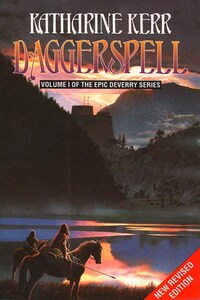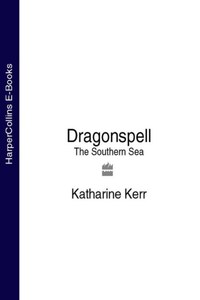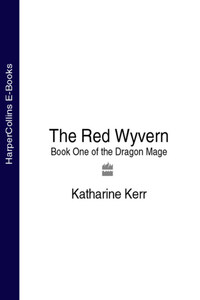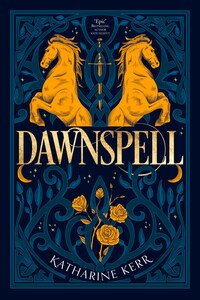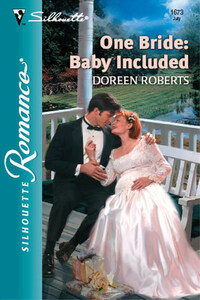Voyager
An imprint of HarperCollinsPublishers
77–85 Fulham Palace Road,
Hammersmith, London W6 8JB
www.harpercollins.co.uk
First published in Great Britain by GraftonBooks 1991
Copyright © Katharine Kerr 1991
Katharine Kerr asserts the moral right to be identified as the author of this work
A catalogue copy of this book is available from the British Library.
This novel is entirely a work of fiction. The names, characters and incidents portrayed in it are the work of the author’s imagination. Any resemblance to actual persons, living or dead, events or localities is entirely coincidental.
All rights reserved under International and Pan–American Copyright Conventions. By payment of the required fees, you have been granted the nonexclusive, nontransferable right to access and read the text of this e-book on-screen. No part of this text may be reproduced, transmitted, downloaded, decompiled, reverse-engineered, or stored in or introduced into any information storage and retrieval system, in any form or by any means, whether electronic or mechanical, now known or hereafter invented, without the express written permission of HarperCollins e-books.
HarperCollinsPublishers has made every reasonable effort to ensure that any picture content and written content in this ebook has been included or removed in accordance with the contractual and technological constraints in operation at the time of publication.
Source ISBN: 9780586207888
Ebook Edition © AUGUST 2014 ISBN: 9780007400980
Version: 2014–08–18
‘As thrifty as a dwarf’ is a common catch-phrase, and one that the Mountain People take for a compliment. Although they see no reason to waste anything, whether it’s a scrap of cloth or the heel of a loaf, they keep a particularly good watch over their gemstones and metals, though they never tell anyone outside their kin and clan just how they do it. Otho, the silver daggers’ smith down in Dun Mannannan, was no different from any other dwarven craftsman, unless he was perhaps more cautious than most. His usual customer was some hotheaded young lad who’d dishonoured himself badly enough to be forced to join the silver daggers, and you have to admit that a wandering swordsman who fights only for coin, not honour, isn’t the sort you can truly trust with either dwarven silver or magical secrets.
During his long years among humans in the kingdom of Deverry, Otho taught a few other smiths how to smelt the rare alloy for the daggers, an extremely complicated process with a number of peculiar steps, such as words to be chanted and hand gestures to be made just so. Otho would always refuse to answer questions, saying only that if his students wanted the formula to come out right they could follow his orders, and if they didn’t, they could get out of his forge right then and spare everyone trouble. All the apprentices shut their mouths and stayed; they were bright enough to realize that they were being taught magic of some sort, even if they weren’t being told what the spells accomplished. Once they opened shops of their own, they went on repeating Otho’s procedures in the exact way they’d been taught, so that every dagger made of dwarven silver in Deverry carried two kinds of dweomer.
One spell Otho would acknowledge, especially to someone that he liked and trusted; the other he would have hid from his own brother. The first produced in the metal itself an antipathy to the auric vibrations of the elven race, so that the dagger glowed brightly the moment an elf came within a few feet of it. The other, the secret spell, was its necessary opposite, producing an affinity, in this case to the dagger’s true owner, so that if lost or stolen, sooner or later the magical currents of the universe would float that dagger home. The thing was, by ‘true owner’ Otho meant himself, which meant that any lost dagger would eventually come home to him, no matter who had actually made it or how much its interim owner had paid for it. Otho justified all of this by thinking of the purchase price as mere rent, a trifling detail that he never mentioned to his customers.
Once and only once had Otho produced an exception, and that was by accident. Round about 1044, he made a dagger for Cullyn of Cerrmor, one of the few human beings he truly admired. In the course of things, that blade passed to Rhodry Maelwaedd, a young lord who was forced by political exile to join the silver daggers. As soon as Rhodry laid his hand on the dagger, it was obvious that his blood was a little rarer than merely noble – the blade blazed up and accused him of being half an elf at least. Grudgingly, and only as a favour for Cullyn of Cerrmor’s daughter, Otho took off the denouncing spell. What Otho didn’t realize, since his dweomer was a thing of rote memory rather than real understanding, was that he’d weakened the complementary magic as well. The dagger now saw Rhodry, not the dwarf, as its one true owner.

